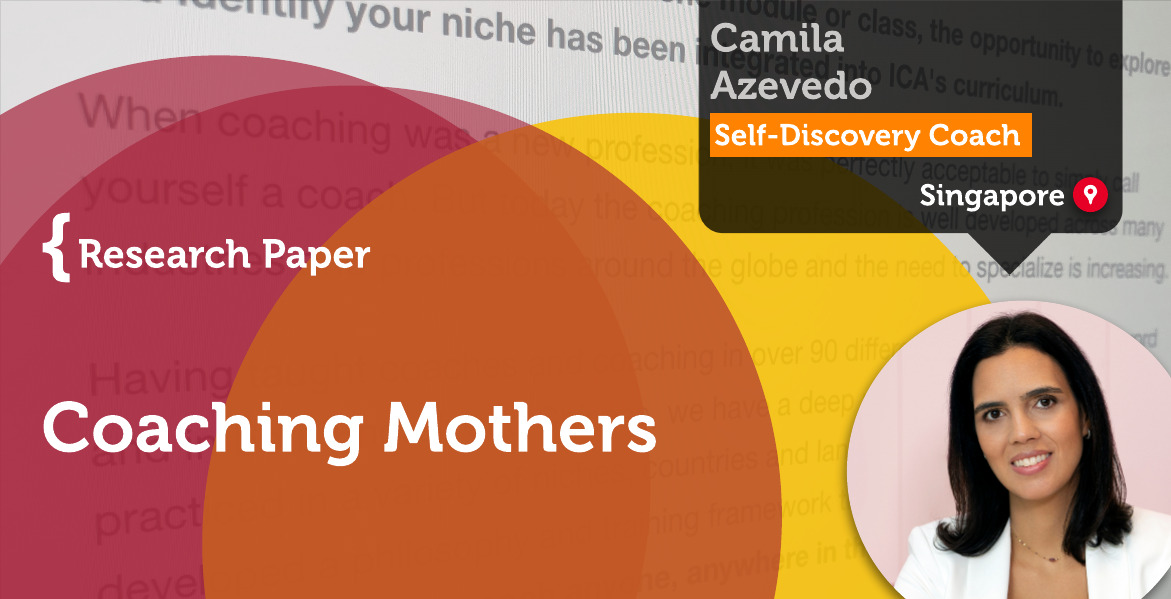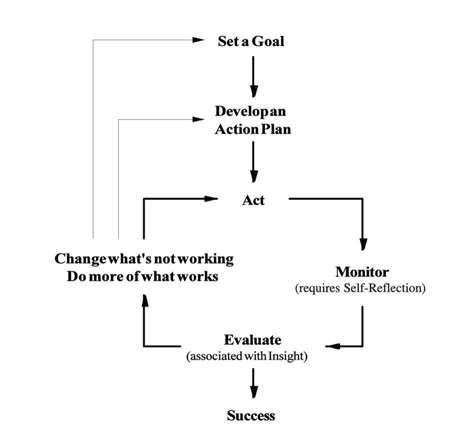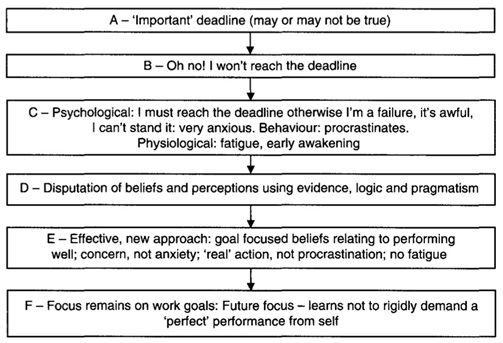A Research Paper By Camila Azevedo, Self-Discovery Coach, SINGAPORE

Techniques to Help Coaching Mothers
Motherhood, especially under the changing dynamic of the pandemic world, is one of the most thorough and challenging non-paid jobs in society. Mothers will guide their children during their social, emotional, academic, and psychological skill development stages that will influence their well-being throughout their entire life. It is a big job, with a vast array of complexities and a constant clash between the mother’s internal values, beliefs, norms, and culture (VBNC) and the external set of VBNC found in today’s world, or external dimensions (Fong, 2015). Motherhood is normally described as the most joyful, rewarding, fulfilling, and gratifying process. It is recognized as a life-altering process leading women into a transition of their identity that permanently creates a shift in their lives (Kuipers, Y. J., Beeck, E. van, Cijsouw, A., & van Gils, Y. 2021). Societal expectations regarding what the perfect mother should feel, think, act, and look like are among the biggest struggles mothers face, resulting in emotional and social distress that could severely impact her life, as well as her family’s life (Wilborn, 1976).
This research paper will focus on how coaches can use a variety of techniques to help mothers navigate through the challenges of motherhood by adopting a few coaching methodologies that we will explore throughout the paper.
Motherhood Challenges:
Society’s intrinsic message is that motherhood only has positive experiences, and any deviation is seen as unnatural, leaving mothers alone to deal with their struggles (Shelton & Johnson, 2006). The first set of challenges starts during pregnancy when mothers must deal with physical, hormonal, and emotional changes happening during this phase of their lives. Pregnancy can potentially bring unpleasant symptoms (such as insomnia, irritability, nausea, pain, fatigue, etc ) that are likely to drain the exacerbated happiness first felt as mothers find out they are pregnant. The fear of childbirth is also very present as they progress throughout the stages of pregnancy creating, once again, intense feelings of stress and anxiety. Beyond the physiological difficulties mothers have to overcome, there are also feelings of uncertainty surrounding their new lives. This can create doubts as to how prepared they are to take on the challenge of raising another human life along with all the doubts and fears surrounding the start of this new journey. Unfortunately, very few mothers have a safe place to share such feelings without being judged or viewed as bad mothers (Soltani, F. and Maleki, A. and Shobeiri, F. and Shamsaei, F. and Ahmadi, F. and Roshanaei, G., 2017).
After childbirth, most mothers experience a major internal conflict – they love their children but, at times, struggle with the vast emptiness created from losing their identity and not being able to integrate their old self into the new one. A significant part of who they were before becoming a mother gets lost in this new role, which is completed pushed aside to give space to the new responsibility of motherhood. The grieving process of their old identity and idealizations alongside a false idea imposed by society that motherhood is peaceful, fulfilling, pretty, and organized can create a sense of disappointment leaving mothers feeling resentful, depleted, and exhausted. As mentioned before, mothers usually must face these issues alone, feeling an increasing need to create a façade. Portraying themselves as amazing mothers with everything under control and flawless relationships with their children becomes a performance used to prevent judgment against the different realities of their daily lives (DeGroot, J. and Vik, T.,2019).
This façade feeds the notion that a mother needs to sacrifice to be perfect, a very harmful belief forcing mothers to isolate themselves in their struggles while feeling ashamed for not achieving societal idealizations (DeGroot, J. and Vik, T.,2019). This façade prevents mothers from fully embracing their transformation. As they fight to accept their emotional, social, and physical difficulties, they waste so much energy creating this false picture-perfect mother. This struggle prevents the integration of their old and new self into a new inner-self, one that could be powerful and grounding to help them perform their roles as mothers and as human beings in a society that is so unstable and shallow.
Coaching can be a very powerful tool to assist mothers in assessing their inner-self and wisdom by empowering them with their identity and desires while separating them from the external set of demands as they perform such an important job helping shape the future of society. Ultimately, coaching can help mothers integrate their old identity with the realities of their new lives arriving in a strong, unique, and meaningful true identity that values who they are.
Coaching Mothers: How Can the Coaching Process Help Mothers Discover Their True Selves?
This coaching process is based on self-discovery, which is grounded in self-reflection, creating awareness, and enlarging the consciousness we have about our identity and behavior (Grant, 2003). A substantial part of coaching revolves around creating a safe space that cultivates empathy, acceptance, and transformation. Coaching mothers requires coaches to be even more aware of the importance of such a safe environment due to the sensitivity of a mother’s struggles and the lack of support surrounding them. A coach’s responsibility is to create a safe space for mothers to embark on their internal journeys, where their thoughts, feelings, and behaviors can be shared in a welcoming, non-judgemental, and compassionate environment. The International Coaching Federation (ICF) main competencies focus on the importance of creating this safe space under the Cultivate Trust and Safety competency. The ICF defines it as partnering with the client to create a safe, supportive environment that allows the client to share freely while maintaining a relationship of mutual respect and trust.
Finding a balance between both the internal and external environments is key to the emotional health of mothers. Mothers are often in need of a support system, which is not easily available due to the negative connotation society puts on the challenging feelings women have related to motherhood (Shelton & Johnson, 2006). That is where coaching can play a crucial role. Mothers are more comfortable explaining their issues to an outside party with no personal connection to them. Coaches can fill this void in a mother’s life by being present, listening, understanding the issues, and empowering mothers to find their paths as they navigate the challenges of motherhood. In the following session, we will focus on how both the Cognitive-Behavioural and the ABD models can be of great assistance when coaching mothers.
Effective Tool to Help Mothers: CBC/ ACB/ABCDEF
The Cognitive-Behavioural model of coaching can be a very effective tool to help mothers embrace their true selves as their identity transforms as part of their transition into motherhood. The Cognitive Behaviour Coaching (CBC) model recognizes the interaction between the four areas of human experiences: thoughts, feeling, environment, and behavior. From this perspective, achieving any goal is facilitated by understanding how the four areas are interacting with each other, and deciding the most meaningful way to re-structure them to create transformation (Grant, 2003). With this dynamic in place, CBC can help mothers to access their identity by exploring their inner world (thoughts, feeling, and perspectives) including, but not limited to, identifying and deconstructing their belief systems. CBC is based on the idea that one’s thoughts about a situation or person will influence emotions which in turn will impact one’s behavior (Williams, Palmer, Edgeton, 2010).
The CBC could include a set of self-regulation steps that will help mothers identify their set of goals, develop a plan of action, monitor performance through self-reflection, gain insight, and make changes to better support them in reaching goals. It is a meaningful process that supports mothers as they connect their thoughts, emotions, and beliefs to their understanding of perspectives and behaviors, therefore, bringing awareness into their inner-self. As mothers are provided with a safe space, exploration becomes more likely to create a magical space that could transform their life. Figure 1 below exemplifies the self-regulation process (Grant, 2003).
Figure 1:

For mothers, the support from coaching is especially important as they navigate the conflicts between their old life and their new reality. As Barnard and Martel wrote, “mothering is learned in the process of interactions with the individual mothered.” Coaches need to understand the individual behind the mother and the grieving process mothers experience for their old life, self, and body to give space to a whole new part of themselves that they never got into contact with before. It creates a period of confusion, called an integration period, where the person one was before having children merges with who they are afterward. It is important to understand more about the individual women’s unique identities before and after motherhood. In line with CBT, their internal identity has four constructs: how they feel, see, act, and think (Fong, 2015) and these constructs, together with the external pressures, are the basis of their belief systems. As a woman transitions into motherhood, some beliefs are no longer healthy, which are called limiting beliefs. A limiting belief is not necessarily true, but it will influence behavior and can be changed. The main benefit in identifying limiting beliefs is the ability to deconstruct them and shift them into an empowered belief that could move us forward (Johnson, B, and Geal, M., 2005).
Another coaching tool that supports the Cognitive Behavioural approach is Albert’s Ellis classic ABC Model of Emotional Disturbance, and the ABCDEF model of the Rational Emotive Behaviour Approach (Ellis, A., Gordon, J., Neenan, M., & Palmer, S., 1997; Palmer, 2009). Both models provide coaches with powerful tools to review trigger events of emotional disturbance and identify thinking patterns and beliefs that are not helpful. This aids mothers in searching for healthier thoughts that will lead to improved behavior. In the ABC model, A represents the activating events, B is the beliefs, and C is the consequences (behavior). The ABCDEF model expands this classic approach by adding the following elements: D for disputing beliefs, E for effectively creating new responses, and F for the future focus on personal goals (Williams, H. and Edgerton, N. and Palmer, S.,2010). The ABCDEF framework works well for mothers as a model of stress, performance, coping, and resilience which will resonate with the challenging difficulties of motherhood. Palmer (2002) exemplifies the ABCDEF model in use in the below chart:

The coach, equipped with the tools mentioned above, can help mothers better clarify and establish their SMART goals (Specific, Measurable, Achievable, Realistic, and Time-bound goals). To create this clarity, a coaching agreement must be written with purposeful and meaningful language. It must also be internalized, by the coach and the client, to establish a relationship of trust and open communication. Following the goal-setting process, coaches can use the Socratic questioning approach to evoke awareness and help mothers deconstruct their thoughts and find the best versions of themselves through intuition, self-esteem, and self-acceptance. A safe environment created during the sessions will allow mothers to communicate and explore negative emotions such as guilt, blame, self-doubt, fear, loneliness, and many others that would not be well-received by family and friends (Lancer, Clutterbuck, Meginson,2016). The ability to share and work through those feelings will bring a sense of relief and acceptance for mothers (Williams, H. and Edgerton, N. and Palmer, S.,2010). The real relevance of this methodology is that it creates the most impactful outcome: allowing “individuals to become their coach” (Neenan& Palmer, 2001a). The empowerment given by the coaches and tools uncovered by mothers is what they need as they navigate the challenges of motherhood.
Coaching Is an Essential Tool That All Mothers
In conclusion, motherhood is a wonderful experience filled with love, adventures, laughter, and joy; however, it also comes with a set of negative feelings like insecurity, guilt, loss, distress, and depression (Arendell,2000). A lot of the frustrations associated with motherhood come from the expectation of what motherhood should look like, which is influenced by society. Coaching is an essential tool that all mothers should have available to them. The transformation mothers go through by having access to trustworthy coaches develops their most powerful tool: their inner-self. That grounded sense of self will, in turn, help them find balanced ways to meet all the demands of motherhood without forgetting their personal goal and aspirations. It will also help them develop deeper ways to connect, support, educate, accept and love the ones around them. Interestingly, during my research, I found very few studies about the benefits of coaching for mothers as individuals; the majority of studies measured the benefits of coaching for their children. Indeed, the well-being of parents and children is interwoven, and no doubt coaching a mother will impact their children positively; however, society has been paying too little attention to the woman behind the mother. It is time that we realize that motherhood is led by an individual that needs support and understanding. If we want our world to continue to evolve and become more kind, loving, and considerate, we should start extending those feelings to mothers.
References
DeGroot, J. M., & Vik, T. A. “Fake Smile. Everything is under control.”: The Flawless Performance of Motherhood. Western Journal of Communication, doi:10.1080/10570314.2019.1678763
Ellis, A., Gordon, J., Neenan, M., & Palmer, S. Stress counseling: A rational emotive behavior approach. New York: Springer.
Fong, Christopher. The Systemic Perspective Approach (SPA) – A Multi-Cultural Model for Workplace Counselling in the Singapore Context. Faculty of Business, Education, Law, and Arts. The University of Southern Queensland.
Grant, A. M. The Impact of Life Coaching on Goal Attainment, Metacognition and Mental Health. Social Behavior and Personality: An International Journal, doi:10.2224/sbp.2003.31.3.253
International Coaching Federation.(n.d).
Jojnson, B., and Geal, M. Limiting Beliefs. Coach the Coach-Issue 17. Fennan Limited.
Kuipers, Y. J., Beeck, E. van, Cijsouw, A., & van Gils, Y. The impact of motherhood on the course of women’s psychological wellbeing. Journal of Affective Disorders Reports, doi:10.1016/j.jadr.2021.100216
Lancer, N. and Clutterbuck, D. and Megginson, D. Techniques for Coaching and Mentoring. Second Edition.Routledge.
Megginson, David; Clutterbuck, David. Techniques for Coaching and Mentoring. Abingdon, Oxon: Routledge.
Moore, M., Parsons, B., & Jessup, P. How Evaluators Can Use a Complex Systems Lens to Get “Untrapped” From Limiting Beliefs and Assumptions. American Journal of Evaluation, 109821401875657.doi:10.1177/1098214018756578
Palmer, S. Cognitive and organizational models of stress that are suitable for use within workplace stress management/prevention coaching, training and counseling settings. The Rational Emotive Behaviour Therapist
Soltani, F., Maleki, A., Shobeiri, F., Shamsaei, F., Ahmadi, F., &Roshanaei, G. The limbo of motherhood: Women’s experiences of major challenges to cope with the first pregnancy. Midwifery, doi:10.1016/j.midw.2017.08.009
Shelton, N., & Johnson, S. “I think motherhood for me was a bit like a double-edged sword”: the narratives of older mothers. Journal of Community & Applied Social Psychology, 316–330.doi:10.1002/casp.867.
Williams, H. and Edgerton, N. and Palmer, S. Cognitive Behavioural Coaching. In Cox, E., and Bachkirova, T., and Clutterbuck, D. The Complete Handbook of Coaching. Sage.
Wilborn, B. L. The Myth of the Perfect Mother. The Counseling Psychologist, 42–45.doi:10.1177/001100007600600211.
Neenan, M., & Palmer, S. Cognitive-behavioral coaching. Stress News